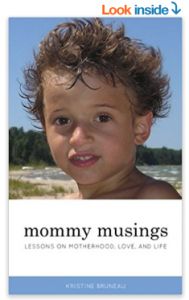 “There is no youth problem in youth sports. There is an adult problem in youth sports.” – Coaching School founder Gary Avischious.
“There is no youth problem in youth sports. There is an adult problem in youth sports.” – Coaching School founder Gary Avischious.
A while back, I read a commentary on youth sports by Rochester Democrat and Chronicle’s sports columnist Leo Roth. As a youth hockey coach for years, Roth has seen both the good and the bad side of parental behavior before, during, and after hockey games. His message is simple: support your child, but don’t live vicariously through them while they play. This sentiment struck a chord with me as I recalled recent instances of poor behavior by parents during the last two youth soccer seasons, including arguing with coaches, confronting referees, and berating their kids while on the pitch.
Adult misconduct and parents behaving badly during youth sporting events is nothing new. Thanks to a cell phone video posted on YouTube and relentless media coverage we can replay a parent scuffle during a girls U17 soccer game. My point is that our behavior – good and bad – as parents is noticed by our children. Lashing out with rage, sarcasm, and fighting has no place on the sidelines. Unkind words and actions may not make headlines, but that doesn’t mean the damage to a child is any less severe. Behavior in the crowd impacts players on and off the field. How do you want your child to remember you? As an advocate or a bully?
Ever wonder why kids quit youth sports?
According to research by Michigan State University’s Institute for the Study of Youth Sports, more than 70% of kids drop out of youth sports by the age of 13. One of the main reasons: adults! As parents we can’t help but get caught up in how our kids play and learn, focusing on the score or the outcome. We think we’re helping our kids by nagging them to practice, comparing them to other kids, giving them our opinions of what they should have done, or telling them they can’t quit when they say they’re not having fun anymore. The reality is that our kids will burnout because of us.
Kids play sports because it’s fun. Kids quit sports when it stops being fun. MSUs research also showed that kids put fun, socialization, and learning new skills as the top reasons for playing sports. Winning ranked about 8th on the list. The study concluded that when adults overemphasize performance and winning, it creates more pressure on kids, which leads to a zero fun factor and a high drop out rate. How do we become better role models for our kids?
We can start by keeping our mouths shut, eyes open, and letting our kids play.
As grown ups we model behaviors that our kids emulate. The things we say and do can affect how long our kids stay involved in a sport as well as how our kids perceive their abilities. Researchers are conducting more studies on problems parents might create in the sport experience. How we act before, during, and after a practice or game can have a positive or negative impact on our kids performance and enjoyment.
In soccer, kids bobble a ball, score on their own team, miss shots, or always seem to be off-sides. Mistakes happen, from children to professionals. A referee makes a bad call that goes against your team, and you lose because of it. That doesn’t make the referee deserving of a parent’s rage. A coach doesn’t seem to be fair to your child about playing time during a game. You’re angry, but your kid isn’t. Does the coach deserve a tongue lashing in front of the entire team and parents while eating popsicles?
Wise people learn from the mistakes of others.
I wasn’t involved in youth sports at an early age. Actually, I hated anything that had to do with running or eye-hand coordination, which limited my options. The closest I came to organized youth sports is when I joined the high school swim team. (Long story short. I decided to join the diving team, but got so nervous that I botched dive after dive until the exasperated coach told me to stop and try out for the swim team.)
When I went to meets, I don’t remember my parents screaming at me to toughen up, swim faster, or get aggressive, because either they kept quiet or weren’t there – but it’s not because they didn’t care. Did you know that many kids perform better when their parents aren’t there watching their every move? Would you perform better or worse if your boss looked over your shoulder when typing an email?
It was okay with me when my parents weren’t watching me swim. I was a nervous wreck, all shaky and goose flesh before each meet. Once the gun went off and I was in the water, I concentrated on each stroke, breath, and kick. I was racing the clock and the rest of the world fell away. For me, this was an awesome zen moment. I was in the zone.
I’ve seen similar moments when James plays. I wondered if he could hear anything on the field. So I asked if he heard parents yelling at him and his teammates to kick the ball, take the shot, boot it, or whatever, on the sidelines during a game. He shook his head. No.
“Do you hear cheering and clapping when you pass well, settle the ball, or get close to scoring a goal?” I asked.
“Yes,” he said with a big smile. “I can hear that.”
Perhaps we can help our kids the most in youth sports when we stay mostly quiet and out of the way, maybe even miss a game or two and allow them to perform their best.
What do you think?
Send me an email, post a comment on my blog or Facebook.


Sadly, parental abuse in sports occurs after childhood as it happened to me recently at a sports league for adults with disabilities. My league and another league, also for disabled adults, shares the same sports facility and the parents from the other league were verbally abusive towards the athletes from my league. The parents were sitting in our league’s benches instead of sitting on their side and started screaming at their own adult children as well as my team, screaming in me and two of my teammates’s ears, being verbally rude towards us, taunting at my league and team, encouraging their adult children to disrupt my league, and causing us to lose our concentration, ultimately, the game as well. This is extremely saddening for the adults with disabilities to know that the parents are making their own children look bad. Worst, nothing was done to reprimand the parents.
At all levels (child-adult), there needs to be a code of conduct that the parents have to follow, yet, there should be a training class on how to be a good sports parents that parents must take before they can watch their children/adult children play in the sports. The parents have to seriously understand that their foolish behavior is not only hurting the children, it is embarrassing them as well and that parents have to set a good example for their children to make sports fun for everyone without any boorish behavior. If everyone came together and had a meeting on how the parents’ behavior is impacting their children, maybe the parents will wake up and realize how childish they have been acting towards their own children/adult children.